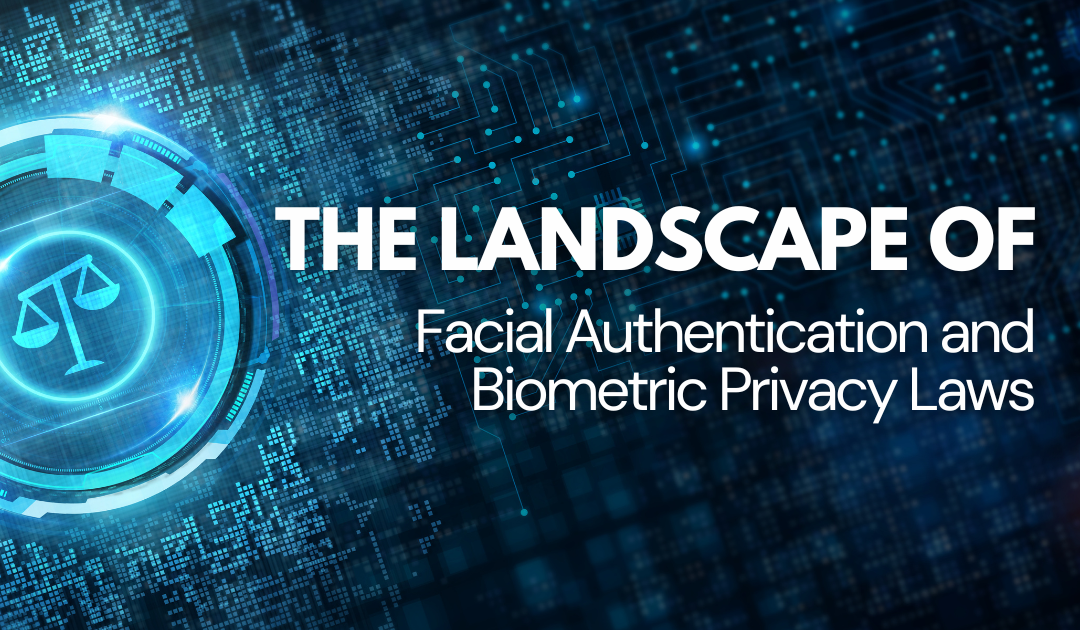Facial authentication technology is at the forefront of digital identity verification. Promising enhanced security and user experience, it’s growing in importance across various industries. However, advancements in this field have also elicited widespread concerns about privacy and surveillance. The rapid evolution of facial authentication technology has also outpaced regulatory frameworks, leaving organizations navigating a complex legal landscape.
The Crucial Distinction: Facial Authentication Versus Facial Recognition
Before we can leap into the legal implications, it’s essential to establish a clear distinction between facial authentication and facial recognition. Facial authentication is the process of confirming an individual’s identity by comparing their facial features against a digital database, which generally does not involve tracking or analyzing identities without consent. On the other hand, facial recognition extends to the identification and tracking of individuals across various contexts, including public surveillance and targeted marketing, often without explicit consent.
Understanding this distinction is not only vital scientifically but also legally, especially for companies seeking to implement facial authentication securely and responsibly. Current laws often fail to differentiate between the two, leading to ambiguity and potential misuse. Thus, this blog aims to educate companies on safely integrating facial authentication into their systems while ensuring compliance with legal and ethical standards.
The Varied Regulatory Landscape: Global and Local Perspectives
In response to the rising concerns around biometric data processing, various jurisdictions have started to enact biometric privacy laws. The European Union’s GDPR is the most notable global regulation that includes biometric data within its scope, laying down strict guidelines for its collection and use. For facial authentication, this means businesses must obtain explicit consent, provide transparency, and ensure that appropriate security measures are in place.
At a more granular level, we can look at individual states in the United States, such as Illinois, and their Biometric Information Privacy Act (BIPA). BIPA mandates strict requirements for the collection and retention of biometric data, including facial templates, and gives individuals the right to take legal action against entities that do not comply. In the case of BIPA, each violation can result in statutory damages, which have the potential to be financially ruinous for businesses.
The global and local regulatory frameworks have set the stage for a compliance minefield. Companies must tread carefully to ensure they are not only keeping up with the legislation but also incorporating these policies into their technological and business practices.
Biometric Privacy Laws in Practice: Compliance Challenges
Complying with biometric privacy laws presents a unique set of challenges for businesses. Unlike traditional forms of data, biometric information is immutable and, once compromised, presents long-term risks for individuals. The high stakes underscore the need for stringent controls, making compliance more than just a checkbox exercise.
To meet these challenges, businesses must consider several key factors:
Technical and Operational Constraints
Implementing facial authentication systems that are compliant requires a mix of technical capabilities and operational safeguards. From encryption and secure databases to audit trails and process controls, the technical requirements are formidable. Additionally, companies must consider how these systems integrate with their existing infrastructure and company processes, ensuring a seamless and secure experience.
Consent Management
The concept of consent in the realm of biometric data is slippery. With facial authentication, consent must be freely given, specific, informed, and unambiguous. Yet, in practice, how consent is obtained and managed can be complex. Organizations need robust frameworks to capture consent and must be able to demonstrate this consent was fully obtained under regulatory scrutiny.
Transparency and Individual Rights
Facial authentication systems must provide clear and accessible information about how biometric data is used. This includes the right for individuals to access their data, request its deletion, or even bring about its cessation. For businesses, building these rights into their systems requires careful thought around data transparency and control.
The Future of Facial Authentication and Compliance
The future holds both challenges and opportunities for facial authentication technology. On one hand, the increasing regulatory scrutiny signifies a growing awareness of the need to protect biometric privacy. On the other, it raises questions about the potential stifling of innovation and the practicality of certain compliance measures.
For organizations, the path forward involves active engagement with policymakers and regulatory authorities to shape a legal framework that balances privacy with the advancement of technology. It also involves adopting a proactive and ethical stance towards biometric data usage, ensuring that privacy remains a core tenet of innovation.
The convergence of facial authentication and biometric privacy laws calls for a nuanced approach. Powering identity verification with facial features brings forth a wave of possibilities for enhancing customer experiences, security, and more. But these must be meticulously weighed against the evolving set of compliance requirements. By understanding the challenges and committing to ethical practices, businesses can remain at the vanguard of biometric innovation while staying on the right side of the law.
Are you ready to experience the future of physical security and access control?
Mark your calendars for April 10-12, 2024, because ISC West 2024 is taking over the Venetian Expo in fabulous Las Vegas, NV—and BioConnect is at the forefront. Make sure to pre-book one-on-one time with our team of security experts for an exclusive walkthrough of our latest advancements at Booth #22109.

